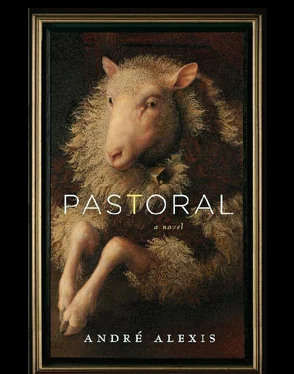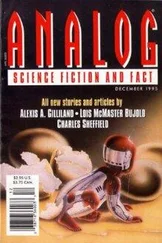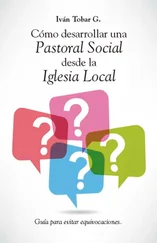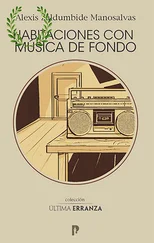Now, because Bigland did not get home until afternoon, he could not correct a problem created by his son: a gate left open. The sheep, Clun Forest ewes, most of them, though unused to gates being left open, were not impressed. They stood around, nibbling distractedly on the grass in the pen. Four of them, however, drawn by the haunting smell of the woods, the trees, the earth in spring, wandered from the pen, going out in search of grass or clover or other things low to the ground. After a while, three of the escapees, having discovered they were not where they thought they were and missing their sisters, began to bleat. Hours later, these three were returned to the pen by Bigland’s son. The fourth, however, went off into the woods.
‘Eighteen,’ the daring sheep, was a striking ewe: thick whitish coat dark with dirt and redolent of lanolin, black-faced, black ears that pointed straight up and twitched at the slightest sound. Her tail was docked and her lower feet and hooves were black. By the time Eighteen discovered she was alone and that there was not much to eat in the undergrowth, she was lost in the woods. She began to bleat, ears twitching, and wandered farther still until she came to the edge of the woods, which was the side of the road. Then, spooked by a sound in the woods behind her, Eighteen ran to the middle of the road where she was struck and killed by a car. Her body flew up, smacked the car’s windshield and was thrown to the side of the road.
As it happened, the car was driven by Jane Richardson. Beside her, Robbie Myers had not put on his seat belt. He flew forward, his head smacking hard against the windshield. He hurt his neck, shoulder and back. He had a concussion and muscle strain, and he was in shock. But there was blood everywhere, so his injuries looked even worse than they were. Without a second thought, Jane, who had not been hurt, drove to the hospital in Barrow.
It’s exaggerating very little to say that everyone in Barrow who knew Jane Richardson or Robbie Myers learned of the accident within minutes of it happening. ‘Everyone’ naturally included Anne Young, who was disheartened by the news, and Elizabeth Denny, who now knew for certain that there was an unclear connection between her fiancé and Jane Richardson.
In this way, Tomasine Humble, Eighteen and Elizabeth Denny were obscurely united across a number of divides.
For Anne Young, the question was how to start a conversation neither she nor her niece wanted to have.
After the accident, the rumours about Jane Richardson’s relationship with Robbie became more frank. The worst things were said as if they were true. For instance, that Jane and Robbie had been fondling each other while driving, that Jane had not been looking where she should have been, that Robbie and Jane, with their motor-car sex, were a bad example for younger kids, that the Richardsons and the Myers were (had always been) bad parents. Didn’t Fletcher Richardson know his daughter was screwing a man with a fiancée? No one actually said ‘screwing,’ but that’s only because the word was superfluous, it being perfectly obvious that that’s exactly what the two were doing; perhaps even doing it in the car as they hit Bigland’s sheep. And didn’t Dinah Myers know her son was putting his money in the wrong bank? What a state we’d reached when parents couldn’t control their children. And what about poor Elizabeth Denny in all this? Wasn’t there a kind soul out there to tell her what was going on between her fiancé and the town floozy? (Well, Jane Richardson wasn’t the town floozy per se. There was competition for the title. None of the Greenwood girls, the ones who lived off Tenth Line, could darn a sock or cross a street without fucking. And Melanie Beauchamp was a known nymphomaniac, having done her own brother. But still, young Jane was certainly headed in that direction.) Not that everyone was against Jane. A sizable faction felt sympathy for her. If Liz Denny couldn’t keep her man, why should that be held against Jane Richardson or even against Robbie himself? True love is a mysterious thing. And God works in mysterious ways. So, let Liz Denny move on. There was bound to be someone else for her around the corner.
No one related the gossip to Anne Young directly. That would have been unkind. Even those who disliked her had, at this point, to be circumspect. But shades of meaning were conveyed in the secret language of spite: a too kind look, a hypocritical touch on the arm, a pointed chattiness that was as prickly as the leaf of a thistle. Anne could feel in others the raw urge to ask if she’d heard about Jane and Robbie, if she knew about them, if Elizabeth had heard, if Elizabeth minded, if the wedding was still on.
The wedding. That was the big thing. Anne herself was dying to ask about it. Rather than avoid the subject, as her husband advised, or wait until Elizabeth brought the matter up on her own, Anne decided to ask her niece directly. She waited until one afternoon when Elizabeth had just come back from work at the bakery. Her niece had made herself a cup of tea and a piece of toast when Anne asked
— Liz? Are you and Robbie still getting married?
They were in the kitchen. The fridge’s hum sounded almost aggressive. The afternoon sun was so bright Anne had had to get up and pull the half drapes closed so there was enough shadow to make sitting at the table bearable.
— Yes we’re getting married, Elizabeth answered. What makes you think we’re not?
— Well, I’m sure you heard about Robbie and Jane Richardson. Their accident?
— Aunt Anne, what does that have to do with anything? He was in the car with Jane and she drove into a sheep. You want me to cancel my wedding for that?
— I don’t want you to cancel your wedding, sweetheart. I want you to do whatever feels right.
Elizabeth had eaten her toast and gooseberry jam. The crumbs clustered on the white plate looked vaguely like a face: eyes, nose, a small mouth. The knife she had used for the butter and the one for the jam were crossed like an elongated X on the table, until she took them up and put them in the sink.
— You know, Anne continued, there’s a lot of talk about Robbie and Jane seeing each other. I don’t think anybody knows anything for sure …
— If nobody knows for sure, why do they all talk about it?
— Barrow isn’t the city, Liz. You know as well as I do that people around here can talk about cow dung for hours. Talking about you and Robbie must be a relief, when you think about it.
Despite herself, Elizabeth laughed.
— That’s true, she said.
This was just the thing she loved about her aunt: Auntie Anne could always find the thing to make her laugh or bring her around. In this matter, though, Elizabeth didn’t want to be brought ’round. She did not want to talk about Robbie or Jane or marriage until she had worked through her feelings on her own.
— I’ve heard all the same rumours as you, Elizabeth said.
She’d heard more of them and heard them directly, because even people she hadn’t spoken to in years felt it was their duty to let her know what a shit-heel Robbie was. Everything was said in the guise of friendly service. Some even expected gratitude in return.
— Robbie wouldn’t do anything to hurt me. If he says there’s nothing going on between him and Jane, I believe him.
This was not quite a lie. If he had said such a thing, she would have believed him. But, in fact, the night before, he had said the opposite. Not only had he admitted to his relationship with Jane, but he’d insisted he would not give Jane up, though, inexplicably, he still wanted to marry her, Elizabeth. It should have been a simple matter after that. Any self-respecting woman would have slapped his face and left on the spot. Any self-respecting woman would have refused to see him again. But, to her shame, Elizabeth found it wasn’t so simple. She knew one thing (that she should leave him) and felt another (that she should stand by him, whatever he did). This is what she couldn’t admit to her aunt, for fear she’d seem ridiculous or weak or irresolute, all of which she felt.
Читать дальше












